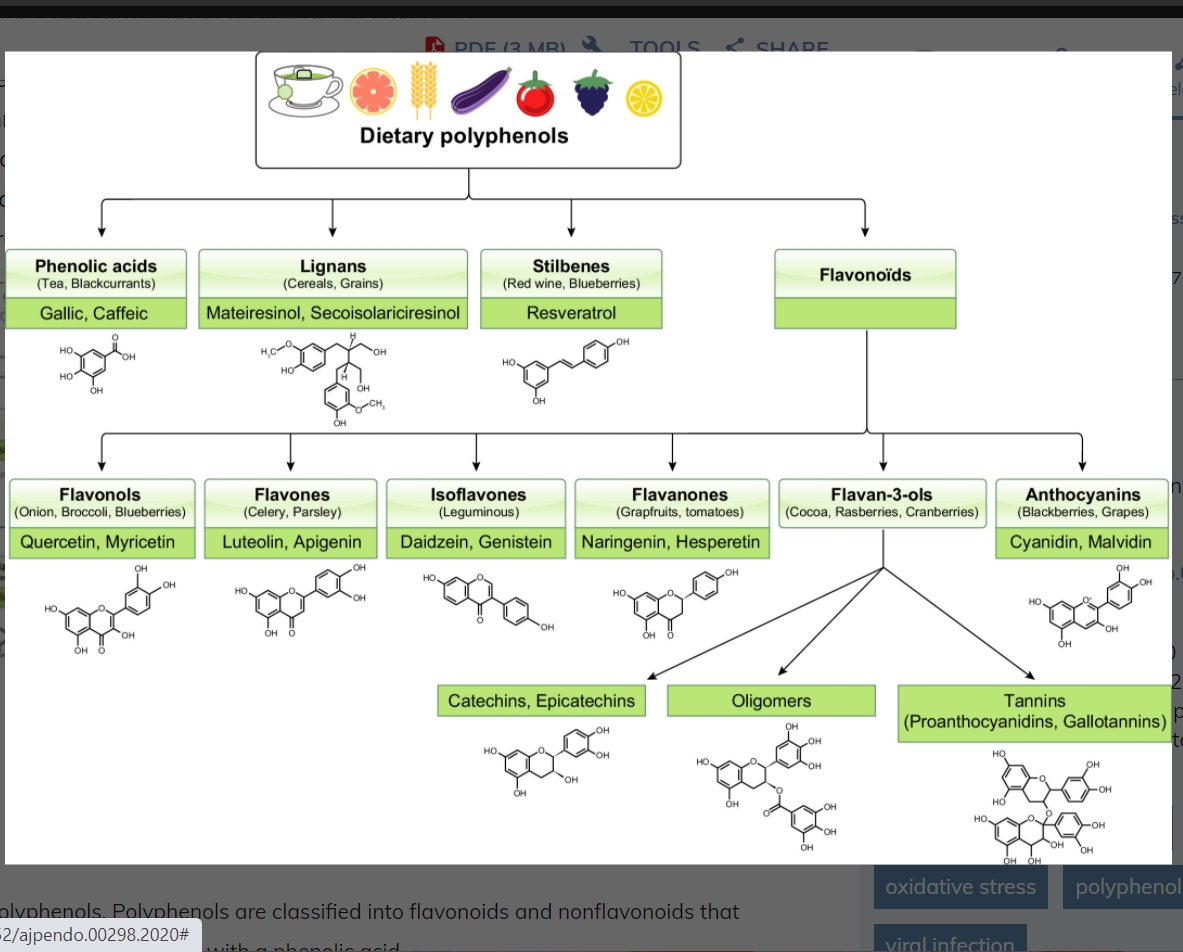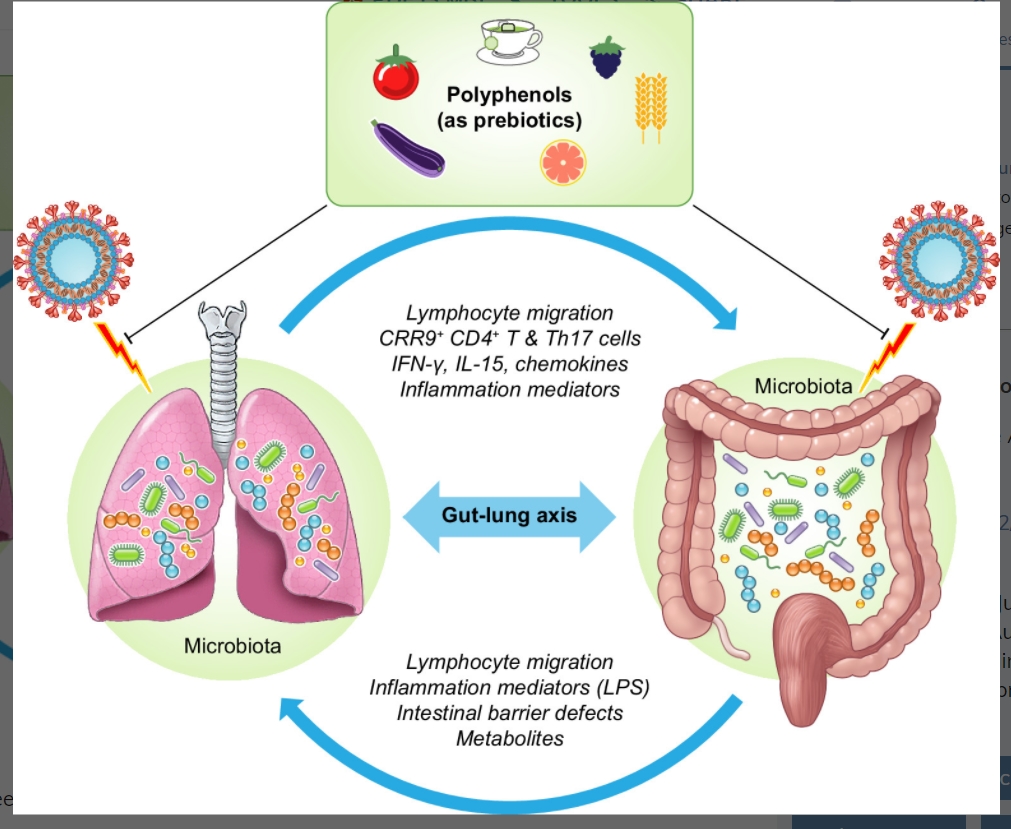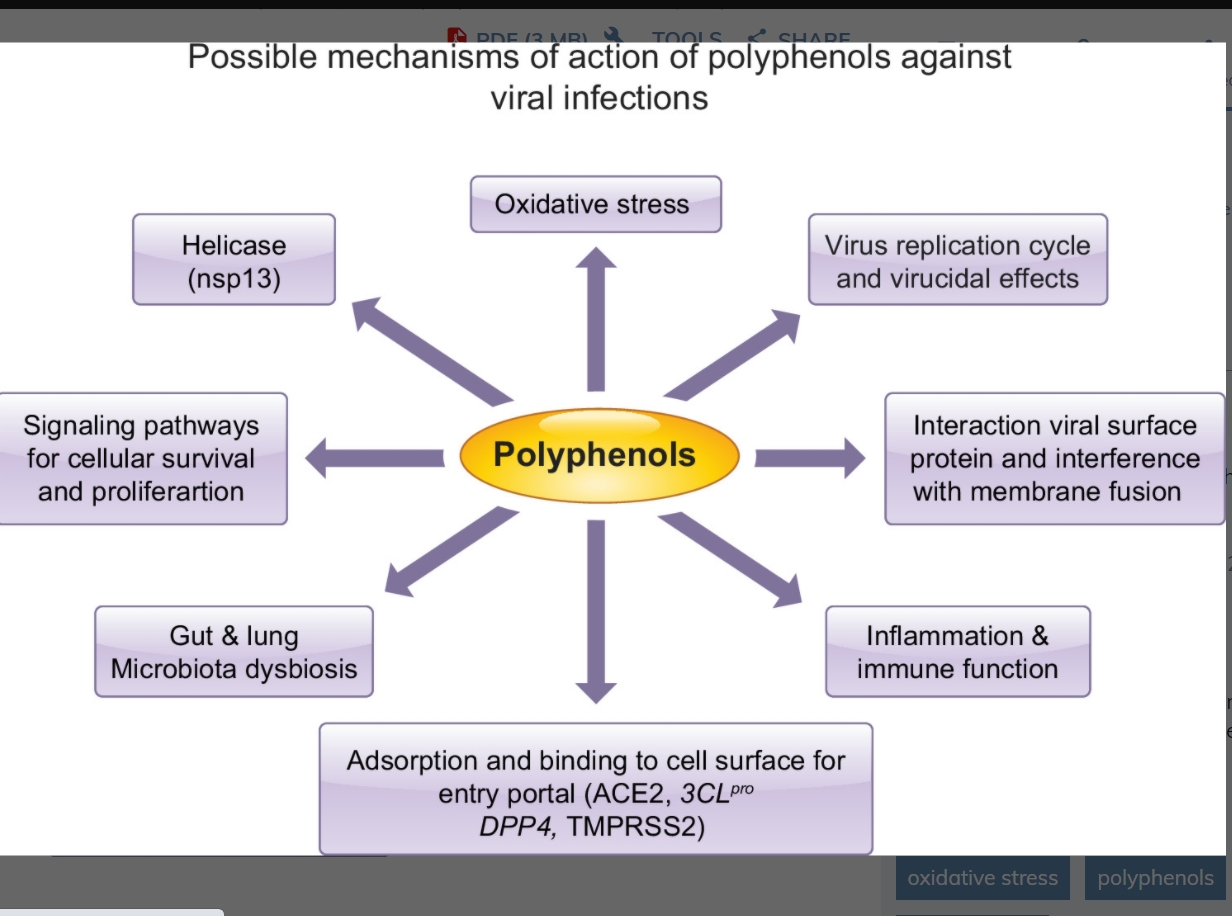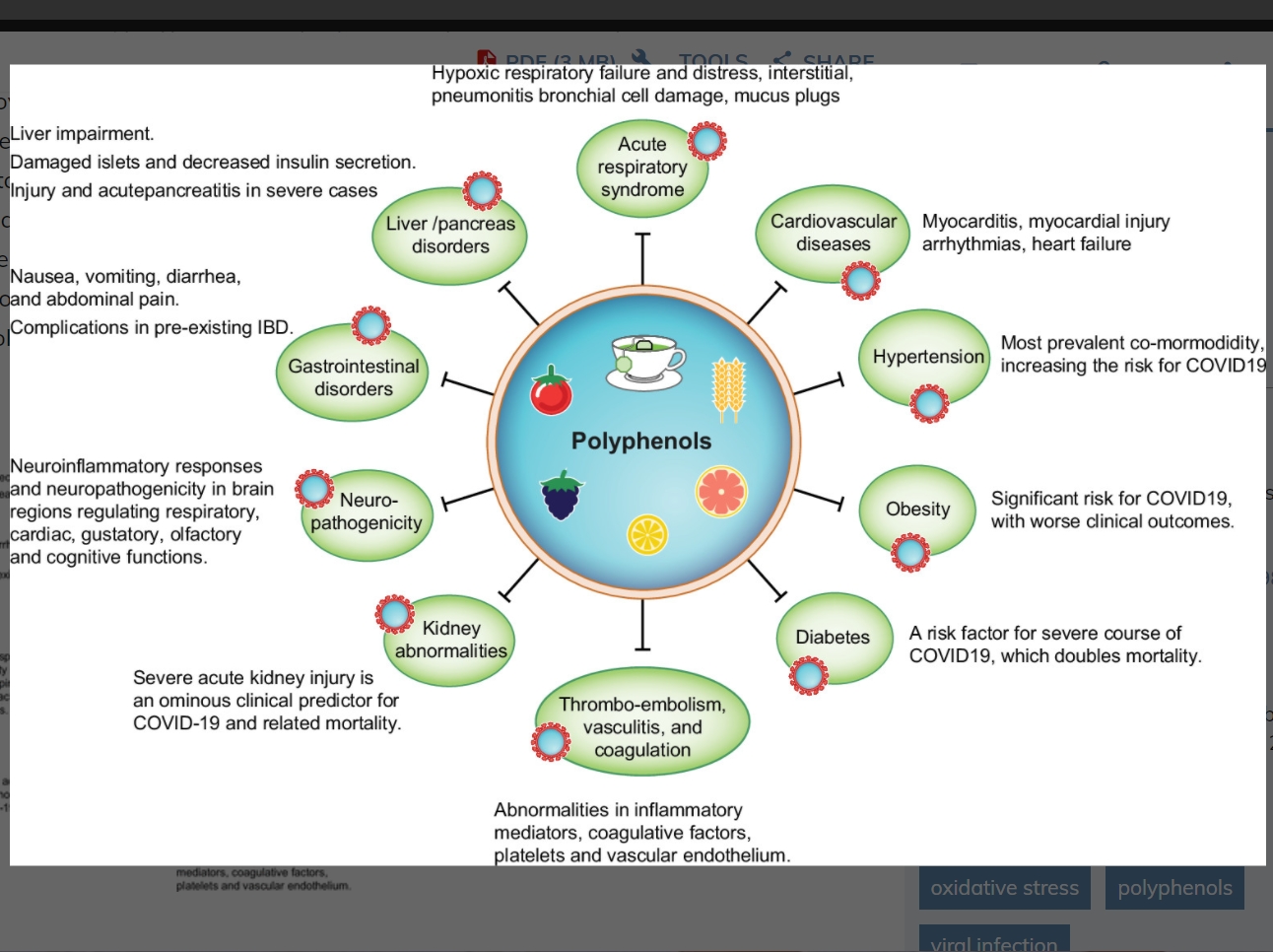Can phytotherapy with polyphenols serve as a powerful approach for the prevention and therapy tool of novel coronavirus disease 2019 (COVID-19)?
Emile Levy, am j physiol endo 20 SEP 2020
Much more serious than the previous severe acute respiratory syndrome (SARS) coronavirus (CoV) outbreaks, the novel SARS-CoV-2 infection has spread speedily, affecting 213 countries and causing ∼17,300,000 cases and ∼672,000 (∼+1,500/day) deaths globally (as of July 31, 2020). The potentially fatal coronavirus disease (COVID-19), caused by air droplets and airborne as the main transmission modes, clearly induces a spectrum of respiratory clinical manifestations, but it also affects the immune, gastrointestinal, hematological, nervous, and renal systems.
The dramatic scale of disorders and complications arises from the inadequacy of current treatments and absence of a vaccine and specific anti-COVID-19 drugs to suppress viral replication, inflammation, and additional pathogenic conditions. This highlights the importance of understanding the SARS-CoV-2 mechanisms of actions and the urgent need of prospecting for new or alternative treatment options. The main objective of the present review is to discuss the challenging issue relative to the clinical utility of plants-derived polyphenols in fighting viral infections. Not only is the strong capacity of polyphenols highlighted in magnifying health benefits, but the underlying mechanisms are also stressed. Finally, emphasis is placed on the potential ability of polyphenols to combat SARS-CoV-2 infection via the regulation of its molecular targets of human cellular binding and replication, as well as through the resulting host inflammation, oxidative stress, and signaling pathways.

















